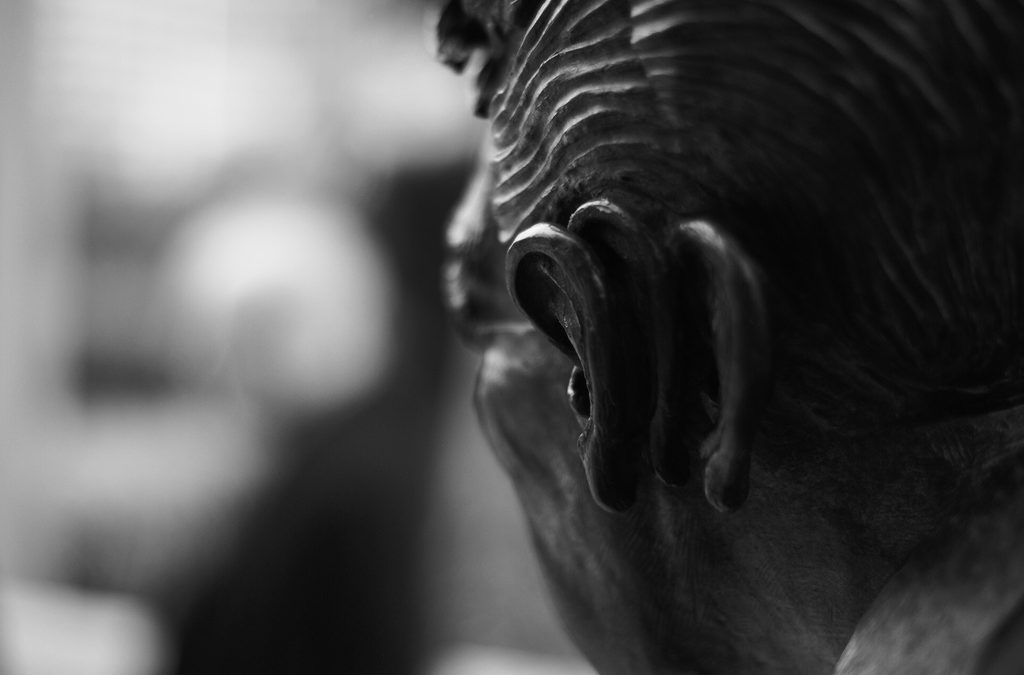Great listening is hard work. When done well, listening will yield huge dividends. If you are not fatigued after a period of focused listening, there’s a pretty good chance that you weren’t listening as well as you could have been.
When we covered high impact listening in LEAD 365, we did so in the context of living systems. Listening breaks through anxious living systems by breaking the cycle of those nearly automatic reactions that we develop simply by spending time with others. Instead of reacting, we listen.
Great listeners have learned to turn themselves off—to turn off that inner monologue. Great listeners have learned to be fully present with others in such a way that their inner workings are as calm as an alpine lake. Great listeners have also learned to seek first to understand. Their immediate response when someone addresses them begins with one goal: Really hear where this person is coming from. What they are not doing is simply waiting to talk while the other person is speaking.
If you’d like to become an even greater listener, keep reading and get ready to develop a third ear.
I’ve discovered that I’ve developed my ability to listen well to others by continually sharpening my ability to listen in, listen out, and listen up.
I’m a firm believer that when it comes to physical fitness, it’s important to listen to my body. There are days I can attack a workout. There are days when I know it won’t be good for me to go at 100 percent. This is tricky. My body lies to me sometimes. I can feel very sluggish occasionally and what my body is actually telling me is: “you need to be active in order to gain energy.” Other times, my body is telling me “you are too depleted or too compromised to give it all you got.” It’s tricky, but I’ve learned to know the difference. I’ve learned to “Listen In.”
This isn’t just true in physical fitness. One of the qualities of great leaders is good intuition. We Listen In to what our intuition is telling us about a given situation. This leadership trait, like listening in with physical fitness, is tricky. However, most leaders will tell you that this can be developed, and that for many it is an indispensable part of their decision making. If you’d like to read more on the power of intuition, the book Co-Active Coaching is a great resource.
Great listeners also Listen Out. This is probably what most of us think of first when it comes to listening. Listening Out is the listening we do with others. We take in what they say with a laser focus, a genuine interest, and a healthy curiosity in a way that allows us to really get to the essence of what they are seeking to communicate. Asking good open-ended questions, avoiding the trap to immediately fill in any silence with our words, and desiring only to draw out more of what is inside of a person are essential skills in Listening Out.
Listening In and Listening Out have both helped me be a higher impact listener. But I would be misleading you if I did not add that I believe a significant part of becoming a high-impact listener is learning to “Listen Up.” Listen Up is an old expression. We often use it as a means to ensure we really have the attention of others. We say, “Listen up everyone,” and then we say what we want to say. I mean something a little different when I use the expression “Listen Up.”
A significant part of my daily routine is how my day begins. I Listen Up. In my case, that is spending time listening to God—primarily through the Bible. It also includes taking a daily “balcony time” view of the day before, the day ahead, and the bigger trends behind me and before me in life. I journal. I pray for those I know I will be with in that day and what is going on in their lives. I firmly believe that my ability to Listen Out well is directly impacted by how much I Listen Up.
As LEAD 365 alumni, we have differing beliefs and values. Listening Up may look different for you. In the book The Contrarian’s Guide to Leadership (which I recommend), author Steven Sample, who was the president of USC from 1991–2010, advocates that Listening Up can happen through any number of what we calls Super Texts—writings that have stood the test of time. There are certain classics that center us, renew our minds, and bring us a focus about ourselves and others. Meditation can also fall into this category—though this can also be a form of Listening In as well.
Being a high-impact listener requires three ears, which genetically none of us have. But we can develop an ear that listens in, listens out, and listens up. And those three ears will make us even greater high-impact listeners.
Keep listening,
Jeff
Imag by Sklathill. Used under CC BY-SA 2.0 license.


Recent Comments